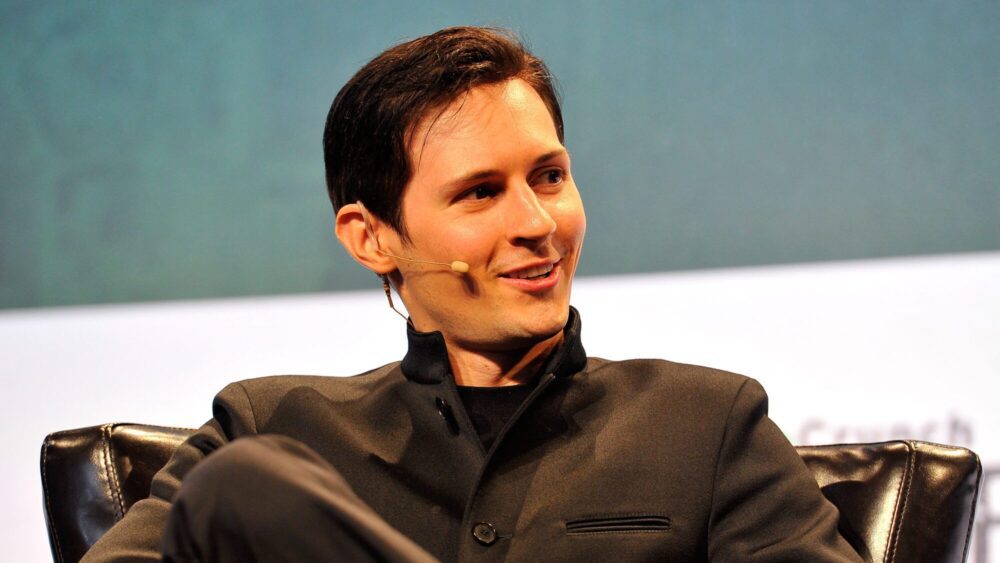
Telegram founder Pavel Durov.
Steve Jennings / Getty / AFP
Pavel Durov, founder and CEO of the encrypted messaging app Telegram, was indicted but released on bail by French judicial authorities on Wednesday night, August 28th.
The Russian-born billionaire was arrested on Saturday after landing in Paris on his private jet, with authorities accusing him of allowing criminal abuse of his free-speech-oriented social media platform, which his lawyer said was “absolutely ridiculous.”
Following an initial round of questioning related to the ongoing probe into Telegram, launched on July 8th, the judge handling the case extended Durov’s detention to the maximum of 96 hours, for further questioning by criminal investigators. This expired on Wednesday evening.
He was promptly transferred to a Paris court where authorities conducted another round of questioning, after which a judge indicted him on six charges out of the initial 12 he was being investigated for. Durov was then released on a €5 million bail, but barred from leaving France until his trial ends—and ordered to check in at a police station twice a week.
The 12 counts of alleged crimes committed with the help of the platform included offenses such as drug trafficking, fraud, selling child pornography, hate speech, and even the dissemination of “extremist content.” His lawyer, Dmitry Agranovsky, was quick to call out the ‘absurdity’ of the case. “It’s the same as blaming a car manufacturer, some giant auto concern, for the fact that its cars are used for criminal purposes, or blaming them for an accident,” he said.
French prosecutors have now pressed formal charges against the Telegram CEO for his alleged complicity in managing an online platform “in order to enable an illegal transaction in an organized group,” refusal to cooperate with law enforcement agencies, as well as
complicity in the offenses of making available without legitimate reason a program or data designed for… organized gang distribution of images of minors presenting child pornography, [and] drug trafficking.
The French public prosecutor’s office also revealed that a preliminary, undercover investigation into Telegram’s complicity was opened in February, with arrest warrants for both Durov and his brother and co-founder Nikolai following in March.
“When consulted, … various Eurojust partners, notably Belgian, shared the same observation [about] Telegram’s almost total failure to respond to judicial requests,” the statement explained. “This led… to opening an investigation into the possible criminal responsibility of the managers of this messaging service.” The case could prove influential outside the European Union, with Forbes reporting that Durov is a suspect in a Swiss criminal case as well.
Telegram itself published a statement shortly after Durov’s arrest, saying that its CEO “has nothing to hide” and that the platform’s moderation conforms to international standards, including the EU’s Digital Services Act (DSA)—as much as any end-to-end encrypted communications service can. “You cannot make it safe against criminals and open for governments,” Durov is reported as sayng in 2016. “It’s either secure or not secure.”
Responding to the charges, Durov’s French lawyer, David-Olivier Kaminski repeated this argument after the announcement:
The only statement I’d wish to make is that Telegram is in conformity with every aspect of European norms on digital matters. It is absurd to think that the head of a social network is being charged.
As the Financial Times reported, Telegram is also being investigated by Brussels about whether the platform breached EU rules by deliberately underreporting real user numbers. The company claims to have about 950 million active monthly users worldwide—but a few million short of the 45 million threshold in Europe that would enable Brussels to classify it as a Very Large Online Platform (VOLP), making it subject to tougher rules and bureaucratic oversight.
Nonetheless, Durov’s arrest sparked a global wave of outrage, specifically among pro-free speech groups and advocates—including Elon Musk, Tucker Carlson, and Robert Kennedy Jr—as Telegram has been always regarded as a safe haven for opposition activists, especially in post-Soviet countries, including Russia and Ukraine.
What’s more, Durov left Russia in 2014 to establish Telegram in the United Arab Emirates specifically because of the Kremlin’s pressure to silence or censor opposition voices on his previous social media site, VKontakte. “I would rather be free than to take orders from anyone,” Durov said back then.
French President Emmanuel Macron, himself an avid Telegram user, tried to wash his hands of the controversy by claiming on Monday that the arrest was “in no way a political decision” and it was “up to the judges.”
In fact, Durov even met President Macron several times prior to receiving French citizenship via a special procedure reserved for those deemed to have made a special contribution to France in 2021. Macron even reportedly suggested to Durov that he should set up Telegram’s headquarters in Paris, but the billionaire refused and stayed with his company in the UAE, where he also holds citizenship.
Naturally, Moscow was eager to capitalize on the situation, accusing Paris of making “a direct attempt to restrict freedom of communication and … directly intimidate the head of a large company.” Both Russia and the UAE requested consular access for Durov, but the French police refused to cooperate so far.
